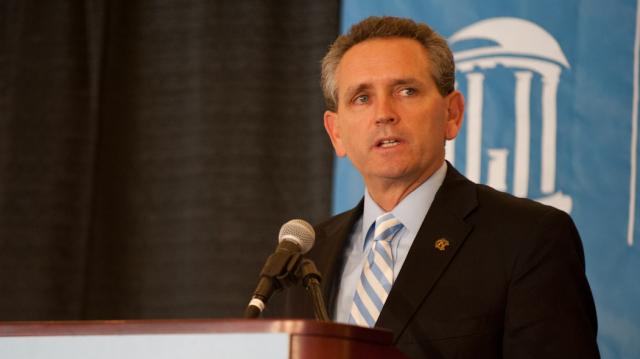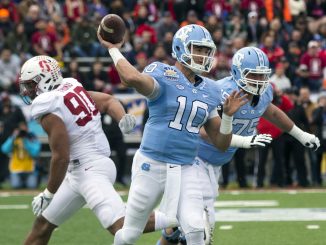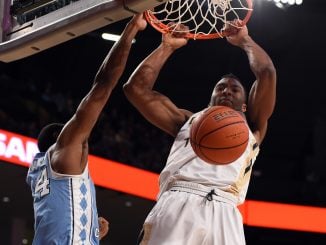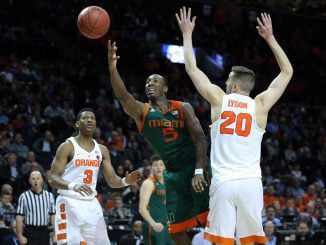
North Carolina and the NCAA don’t agree on much when it comes to the Tar Heels’ seemingly never-ending academic scandal.
But there is at least one thing on which they are in complete accord. The complicated case, which has been going on for more than five years now, is unprecedented in its length and scope.
Both sides acknowledged that fact over the past few weeks as the suddenly escalating battle took yet another unique twist, one that hardened the rhetoric and threatens to prolong the proceedings for at least another six months.
The NCAA launched the first salvo on Nov. 28 when its Committee on Infractions sent UNC a copy of a letter instructing its enforcement staff to reconsider at least one of the allegations leveled against the Tar Heels.
Two weeks later, on Dec. 13, UNC was issued a new notice of allegations — the third it has received over the past two-plus years. This one reinstated mention of the Tar Heels’ men’s basketball and football programs that were omitted from the previously amended version. It also reclassified the anomalous African and Afro-American Studies courses referred to in Allegation 1 as “impermissible extra benefits” while using harsher language in describing the Level I violation as “unethical conduct.”
UNC is accused of five Level I violations, including the most serious “lack of institutional control.”
On Thursday, after publicly releasing the new notice of allegations, UNC athletic director Bubba Cunningham fired back with some strong language of his own in criticizing the NCAA for violating its own bylaws, ignoring evidence it attempted to present and allowing the enforcement process to get “off track.”
“We insist on fair and consistent treatment in the process,” Cunningham said in a teleconference with the media on Thursday. “We are concerned that the Committee on Infractions and the NCAA staff have not been consistent in how they’ve applied bylaws and followed process in our case.
“It makes it really difficult for any institution that’s going to face a group that can act as the investigator, the prosecutor and the judge. I think it’s patently unfair.”
UNC has challenged the NCAA’s jurisdiction in its case, arguing that its accreditation agency should be the organization that addresses matters involving academics.
The Southern Association of Colleges and Schools has already ruled on the matter, placing UNC on probation for its transgressions — a punishment that has already been served and lifted. Cunningham said that university officials and the NCAA’s enforcement staff have spent the better part of the past two years working to working to “align the facts” of its case with the NCAA’s bylaws.
The result was an amended notice of allegations that was issued last April. But after a procedural hearing before the Committee on Infractions in Indianapolis in October, the head of that committee — SEC commissioner Greg Sankey — instructed the NCAA’s enforcement staff to readdress the allegations against UNC to determine whether they “are alleged in a fashion to best decide this case.”
Sankey further angered those in Chapel Hill by denying UNC’s efforts to enter two letters of evidence into the record for the Committee on Infractions to consider.
“The committee chair denied the university’s opportunity to include these two letters in the record the panel would consider as evidence in the October hearing,” Cunningham said. “In the letter we released today, the committee then cited the absence of the very same evidence in the instructions it gave to the enforcement staff to revisit the second notice of allegations. That means the university was deprived the opportunity to submit evidence in the case record and the committee used the lack of evidence against us.”
Cunningham refused to speculate on the NCAA’s motivation in taking its latest course of action. He said he has instructed the university’s outside counsel Richard J. Evrard to write a letter to Sankey expressing concern over the process that led to the third notice of allegations being issued.
“I have to admit I’m surprised and disappointed by the entire third NOA,” Cunningham said. “I have never seen three notices on the same case. The charge of the enforcement staff is to investigate and properly assess the facts to bylaws. To have such a moving target is confounding to me.”
Despite UNC’s displeasure with the way the NCAA is handling its case, Cunningham said that the university plans to “follow this process through to the end.”



